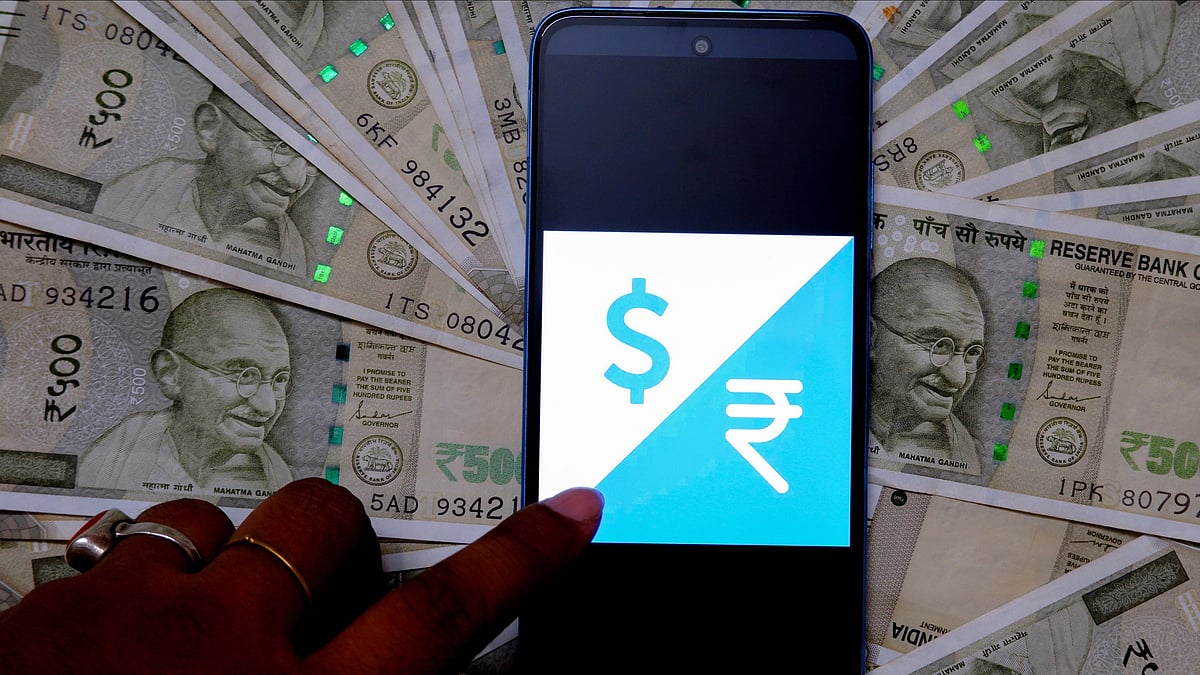Rising oil prices spell trouble for India's current account deficit
The RBI has been releasing dollars in the market to prop up the rupee, but this has not been able to stem the slide of the Indian currency

The increase in international crude oil prices has spilled over into the October-December quarter, raising the spectre of a higher current account deficit (CAD) for India and more pressure on the rupee going ahead. The Israel-Hamas war has added further uncertainty over crude oil prices and the global economic recovery.
A country runs into a CAD when the value of its imports of goods and services is greater than its exports. This weakens the macroeconomic fundamentals of an economy and makes the local currency more volatile.
India imports close to 85 per cent of its crude oil requirement and any increase in global prices causes the import bill to shoot up. Since large payments have to be made in dollars to buy crude, the rupee takes a hit vis-a-vis the American currency. A weak rupee makes imports even costlier as more local currency has to be shelled out to buy dollars.
Also Read: Rupee faces risk from rising oil prices
Crude oil prices have started firming up again and are currently hovering at over $86 a barrel. Oil prices soared nearly 30 per cent in the three months up to September, the biggest third-quarter gain in almost two decades. The benchmark Brent crude had in recent weeks touched a whopping $95 a barrel.
With rising crude oil prices in the international market pushing up the demand for dollars, the Indian rupee has slumped to record lows of below 83 against the US greenback.
India’s merchandise export earnings, which have started contracting, could also take a further hit as global economic recovery has come under a cloud owing to geopolitical turmoil. The country’s leading software services exporters, including TCS, Infosys and HCL Tech, which announced their financial results this week, have also scaled down their revenue guidance for the next quarter.
The country’s CAD jumped seven-fold to $9.2 billion, representing 1.1 per cent of the GDP, in the April-June quarter, compared to the corresponding figure of $1.3 billion in the preceding quarter, according to RBI data released last week. With the continuing surge in oil prices and slowing exports owing to a decline in demand in global markets, this is expected to widen further.

According to Emkay Global Financial Services lead economist Madhavi Arora, the July-September quarter will see a "substantial widening of CAD" to 2.4 per cent of GDP on account of higher oil prices, higher core imports and further slowing of services exports.
Going ahead, much will depend on oil prices in global markets. The RBI has been releasing dollars in the market to prop up the rupee, but this has not been able to stem the slide of the Indian currency. This has also resulted in a decline in the country’s foreign exchange reserves in September.
India’s forex kitty declined for a third consecutive week to a four-month low of $590.7 billion as of 22 September, RBI data showed. The forex reserves fell by as much as $8.2 billion in three weeks.
The decline in foreign exchange reserves is a cause for concern as the RBI well be left with less space to curb the volatility in the rupee through its market interventions
Union petroleum minister Hardeep Singh Puri has also expressed concern over oil prices. "It stands to reason that if crude oil prices go up, that has a very strong and adverse impact on the attempts at global economic recovery… Hopefully, we will be able to navigate through everything. But this is not something on which I would like to speculate," the minister said.
Follow us on: Facebook, Twitter, Google News, Instagram
Join our official telegram channel (@nationalherald) and stay updated with the latest headlines
